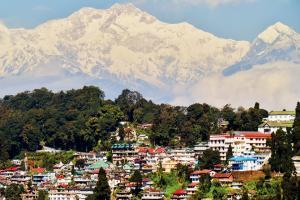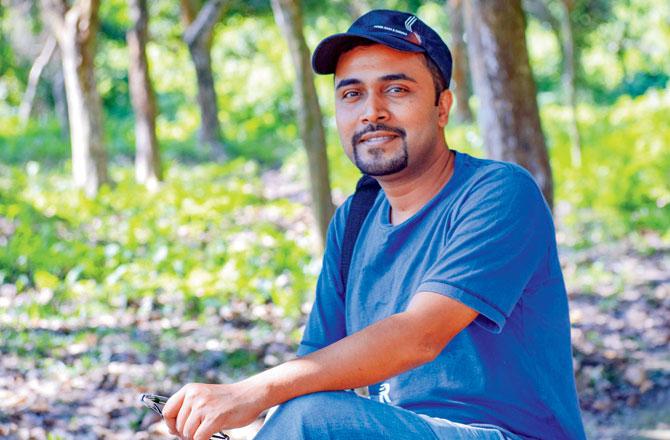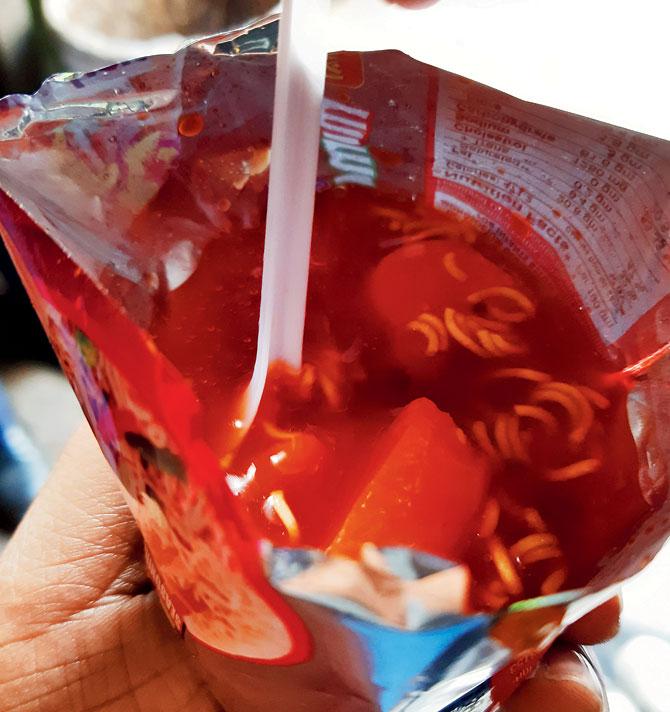A new Instagram chat series by a West Bengal-based culinary explorer shines the light on fares from the mountains, ghats and plateaus

Chef Doma Wang spoke about the different cuisines of the hill station, Kalimpong, in North Bengal
As a mountain lover, it has always irked 39-year-old culinary explorer Sibendu Das that hosts of tourists in hill stations go looking for instant noodles. "Of course, it's not everyone, but whether it's in Ladakh or Shimla, most tourists holiday for days and yet, fail to try the local cuisine," says Das, a journalist-turned-branding and content professional working in Kolkata. Born out of his love for the mountains and food, and the fact that cuisines from the hills remain largely underrepresented, is his Instagram live chat series, Pahadi Ahaar.
ADVERTISEMENT
The weekend talk show, which took off earlier this month, has so far featured four chefs from the hills, and hours of adda about the kind of food they grew up eating. Das, who's been anchoring the talks from his home in Chandannagar, West Bengal, tells us, "I've often had a hard time sourcing local food in hill stations as the locals, whose livelihood depends on the tourists, dish out other cuisines that the latter prefer." Giving us the example of Darjeeling, he adds, "It is one of most popular hill stations in West Bengal, but you can barely find authentic Tibetan or Bhutanese food in the main part of the town. That's why I thought of starting Pahadi Ahaar, where I get together with culinary experts hailing from the hills or representing them."

Sibendu Das
The idea, he shares, was to start a conversation about pahadi food, not just from the Himalayas, but also from the Eastern and Western Ghats, the Vindhyas, and the plateaus. So far on the show, chefs Rahul Wali chatted about Kashmiri Pandit food, Nitika Kuthiala on Himachali food, Nilza Wangmo shared some Ladakhi staples and Doma Wang shed light on the fare of Kalimpong. But it's not just food that Das talks about; he also looks for the stories behind them, the people who make them and the history and socio-economic landscape of the cuisine. For instance, while talking about the popular noodles of Kalimpong, Wang recollected her memories of growing up in a noodle factory, and how the process has changed. Or the time Wangmo gave viewers a glimpse of her traditional utensils made of a kind of stone found only on the border of India and Pakistan. "When you're visiting a place, you can always Google what food you'll be able to savour there, but what you won't get are these stories that are made through human connections, which is rare," he shares.
Although the chats highlight the diverse cuisines of the hills, they also give us a glimpse of similarities that exist for various reasons. "While Kalimpong and Ladakh are from two sides of the country and very different in terms of landscape, it's where most people who fled during the Tibetan exodus settled. So, while watching Wangmo's and Wang's lives, we realised the similarities between both. A Kashmir-born Tibetan who was watching both also connected to it. That's unity in diversity for me."
Log on to @pickletopilaf on Instagram
Nepali aloo dum

Das says, "This recipe was shared by Doma Wang on Pahadi Ahaar. It is a popular street food from the hills of Darjeeling and Kalimpong."
Ingredients
500g potatoes
2 to 3 dry chillies
10 cloves of garlic
Kalonji seeds for tempering
A pinch of Kashmiri red chilli powder, turmeric and salt
A sprinkle of Wai Wai (Thai instant noodles)
Mustard oil
Method
Boil the potatoes, and cut them into medium-sized cubes. Soak two to three dry red chillies in boiling hot water for 15 minutes and then, make a paste out of that with the garlic cloves. Heat a sliver of mustard oil in a kadhai and temper it with kalonji. Now, tip in the chilli-garlic paste, and sprinkle some Kashmiri red chilli powder for the red colour. You can also add a little tomato purée if you want. Now, add the turmeric and salt. Cook the paste on a medium to low flame till the oil separates. Pour in some boiling water to create a thin gravy-like consistency. Bring it to a boil and add the cubed potatoes. Mix well and cook on a low flame for five more minutes, till it becomes a moderately thick gravy. Sprinkle Wai Wai and serve hot.
Keep scrolling to read more news
Catch up on all the latest Mumbai news, crime news, current affairs, and a complete guide from food to things to do and events across Mumbai. Also download the new mid-day Android and iOS apps to get latest updates.
Mid-Day is now on Telegram. Click here to join our channel (@middayinfomedialtd) and stay updated with the latest news
 Subscribe today by clicking the link and stay updated with the latest news!" Click here!
Subscribe today by clicking the link and stay updated with the latest news!" Click here!







